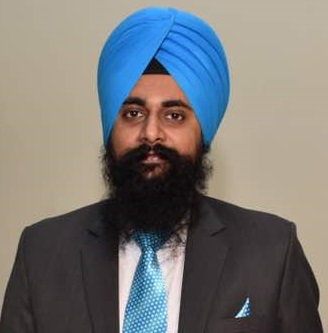Dr Sukhpal Singh Gill, BE, ME, PhD, FHEA

Lecturer (Assistant Professor) in Cloud Computing, Programme Director for MSc Advanced Computer Science
Email: s.s.gill@qmul.ac.ukRoom Number: Engineering, Eng E306Website: http://ssgill.me/Twitter: @iamssgill
Profile
Dr Gill is Lecturer (Assistant Professor) in Cloud Computing with the School of Electronic Engineering and Computer Science, Queen Mary University of London, U.K. He is leading the IGI Global International Journal of Applied Evolutionary Computation (IJAEC) as an Editor-in-Chief and serves as Associate Editor in IEEE IoT, Nature Scientific Reports, Wiley SPE, Elsevier IoT, Wiley ETT, Elsevier Telematics and Informatics Reports and IET Networks Journals, as well as Area Editor for the Springer Cluster Computing Journal. He has co-authored 200+ peer-reviewed papers (with Citations 12600+ and H-index 54 as per Google Scholar) and has published in prominent international journals and conferences such as IEEE TCC, IEEE TSC, IEEE TSUSC, IEEE TCE, ACM TOIT, IEEE TII, IEEE TNSM, IEEE IoT Journal, Elsevier JSS/FGCS, IEEE/ACM UCC and IEEE CCGRID. He was a recipient of several research awards, including the Outstanding Reviewer Award from IEEE IT Professional Magazine 2024, the Elsevier Internet of Things Editor’s Choice Award 2024, the Elsevier Best Paper Award 2023, the Distinguished Reviewer Award from Software: Practice and Experience (Wiley), 2018, the Best Paper Award AusPDC at ACSW 2021, Queen Mary University Education Excellence Award 2023 and the EECS 2023 Award. His research has been featured in leading international magazines such as IEEE Spectrum, Ars Technica, Tech Monitor, Cutter Consortium, and ICT Academy. Dr. Gill is leading GillNet Research Lab; actively designs and develops next-generation computing systems and applications that aggregate or lease services from distributed resources based on their availability, capability, performance, cost, and users’ quality-of-service requirements. For further information, please visit www.ssgill.me.
Teaching
Cloud Computing (Postgraduate)
Cloud Computing has transformed how services and applications are delivered. Thanks to the rise of virtualisation technology and new programming paradigms, applications can quickly be delivered to a growing audience, without the need to physically own and configure the infrastructure. The Cloud Computing module will cover the main characteristics of Cloud Computing, including the enabling technologies, main software and service paradigms underpinning it, as well as related aspects, namely security, privacy, ethical concerns
Fundamentals of Web Technology (Undergraduate)
This is a module designed to offer you practical skills as well as understanding of underlying principles of programming the World Wide Web. There will be two hours of lectures per week, and weekly timetabled lab sessions for each student. Major topics you will study include Internet and Web server basics; client-side programming using XHTML; Cascading Style Sheets, and Javascript. You will develop practical skills in server-side programming using PHP and gain an understanding and hands on experience in the practical issues involved when setting up a website.
Semi-structured Data and Advanced Data Modelling (Postgraduate/Undergraduate)
In this module, student will learn to process XML (with XSLT and Java), to model data with XML (XML native, RDF), and to query XML data (XQuery). The module teaches many concepts of data modelling and knowledge representation that are beyond the syntactic issues of XML or RDF. The knowledge students acquire in the course is fundamental to the many data design and data analytics tasks occurring in todays IT and business landscapes. The second part of the module is dedicated to advanced DB concepts including active databases, mobile databases, spatial and temporal databases, triggers, performance tuning, distributed databases, indexing and query optimisation. The third part of the module covers the modern, agile world of data processing: NoSQL. It is about the processing of semi-structured data, transforming data streams into formats (triplets, JSON) to be processed by new DB systems (e.g. MongoDB, CouchDB). Overall, students will learn in this module to solve data and information management tasks as they typically occur in today's IT landscape.